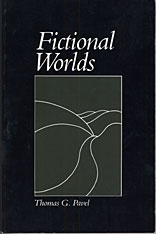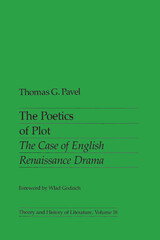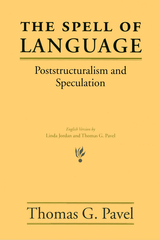
Creators of fiction demand that we venture into alien spaces, into the worlds of Antigone, Don Quixote, Faust, Sherlock Holmes. Created worlds may resemble the actual world, but they can just as easily be deemed incomplete, precarious, or irrelevant. Why, then, does fiction continue to pull us in and, more interesting perhaps, how? In this beautiful book Thomas Pavel provides a poetics of the imaginary worlds of fiction, their properties, and their reason for being.
Pavel is a noted literary theorist and a novelist as well. His genial, graceful book has a polemical edge: he notes that structuralism started as a project to infuse new life into literary studies through the devices of linguistics. That project undercut referential issues, however, and is now obsolete. Pavel argues that what matters about fiction is its relation to the human capacity of invention and the complex requirements of imagination. He moves decisively beyond the constraints of formalism and textualism toward a diverse theory of fiction that is sensitive to both literary and philosophical concerns. Along the way he takes us through special landscapes that reveal the inextricability of art, religion, and myth. This is a venturesome book of the first order.

Thomas Pavel has written extensively on poetics, linguistics, and narratology. In this book he proposes an original theory and methodology of plot analysis—a reading that draws upon the most fruitful aspects of literary structuralism and upon contemporary linguistic models (specifically generative grammar). Theorists have tended to use formal plot analysis to examine relatively simple literary artifacts, like folk tales and short stories; Pavel, however, applies his model to a group of English Renaissance tragedies and demonstrates that plot analysis can make a major contribution to the understanding of sophisticated literary texts.
Pavel leads the reader through step-by-step analyses of increasingly complex plot structures as he explicates Marlowe’s Tamburlaine I, the Jew of Malta, Doctor Faustus and Edward the Second; Kyd’s Spanish Tragedy; The Arden Feversham; and, finally, Shakespeare’s King Lear. He has chosen these plays for their chronological proximity, yet their diversity allows for contrasts and typological considerations. The inclusion of most of Marlowe’s tragedies enables Pavel to gain new insights into a single writer’s strategies of plot construction.The Poetics of Plot moves beyond the establishment and application of a new theory of plot to address broader issues in cultural studies: the role of linguistic models in literary studies, the nature and function of agency in plot advancement and history, the universal features of plot organization, and the relation of plot patterns to period styles and dominant modes of organized knowledge. In his foreword to The Poetics of Plot, Wlad Godzich sketches the historical context in which Pavel’s discussion of plot appears and makes explicit the way that the study of plot challenges both the presuppositions of linguistic analysis and the status of action in philosophical thought.
In this spirited book, Pavel shows that structuralism's flawed use of linguistic theory has rendered hollow the philosophical core of a whole generation of work in the human sciences.
READERS
Browse our collection.
PUBLISHERS
See BiblioVault's publisher services.
STUDENT SERVICES
Files for college accessibility offices.
UChicago Accessibility Resources
home | accessibility | search | about | contact us
BiblioVault ® 2001 - 2024
The University of Chicago Press









